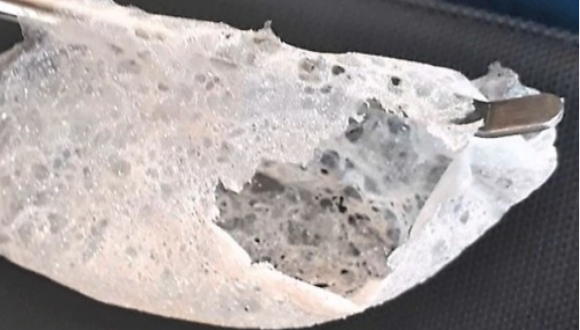Development of bio-polymers from algae can offer a substitute for plastics
Bioresource Technology has published a paper by the Laboratory for Environmental Bio-Engineering about their research to produce bio-polymers in sea water. The recent breakthrough received public media coverage
No more pollution by plastics? No more deadly damage to ocean and seashore life?
During their research to produce renewable raw materials from algea, the research team at the Laboratory for Environmental Bioengineering, led by Dr. Alexander Golberg, developed processes for offshore production of ethanol - sustainable biofuel, sugars and proteins using algae and microorganisms in sea water. The production processes allow to establish algae farms for the production of biofuels and other sustainable raw materials.
The research, led by Dr. Alexander Golberg and Prof. Michael Gozin of the School of Chemistry at Tel Aviv University, recently achieved another significant breakthrough - the production of bio-polymers in seawater, which have the potential to replace the use of plastics, thanks to a process that utilizes the common seaweed (macroalgae) Ulva and the microorganism Haloferax mediterranei, which both grow in salty water. This breakthrough has the potential to pave the way to industrial production of bio-polymers, which will provide an alternative to the use of plastics.
Although there is industrial production of bio-polymers today, it requires the use of agricultural land and fresh water. The process developed by the Laboratory for Environmental Bioengineering is a major breakthrough since the process can be carried out in seawater, saving the use of agricultural land and enabling countries that suffer from a shortage of fresh water to produce sustainable biodegradable plastics. The manufacturing process will therefore be efficient, economical and also environmentally friendly.
Plastic products cause extensive damage to the sea and to seashores. Organizations and volunteers are making a great effort to collect plastic waste from the sea and to clean beach areas. In Europe, there are already legislative processes to prohibit the use of disposable plastic products.
In the January 2019 issue of Bioresource Technology, a scientific paper was published about the new discovery. The study also aroused interest in the press and the radio. Ynet published an article about the study - Israeli development: plastic from seaweed grown in salty water (in Hebrew). The article highlights the fact that the process of production of bio-polymers from seaweed is done in the sea and therefore does not require allocation of land or fresh water. The Ecolife radio program on eco99fm channel, broadcast an interview with Zafrir Rinat on the subject of a wide-scale cleanup operation by the Israel Nature and National Parks Protection Authority to clean plastic waste in beach areas. The program (in Hebrew) discuss the research and its potential to allow the production of plastic substitutes from a renewable biological source.
See more on this research:
No more plastic in the ocean? - TAU article
Israeli development: plastic from seaweed grown in salty water - Ynet
Discussion in the Ecolife radio program - eco99fm (Hebrew)
Ghosh, S., Gnaim, R., Greiserman, S., Fadeev, L., Gozin, M., & Golberg, A. (2019). Macroalgal biomass subcritical hydrolysates for the production of polyhydroxyalkanoate (PHA) by Haloferax mediterranei. Bioresource technology, 271, 166-173. https://www.sciencedirect.com/science/article/pii/S0960852418313610





